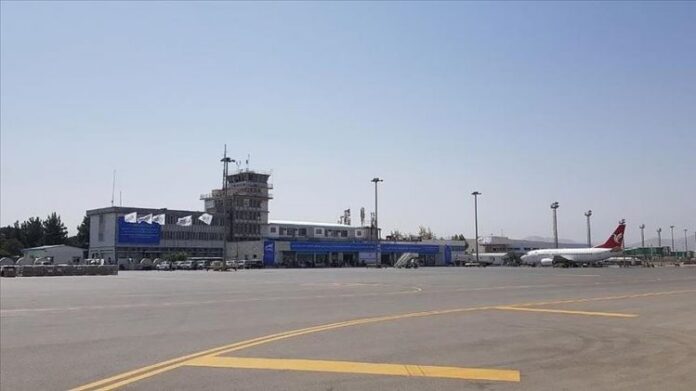
| Translate This News In |
|---|
ISLAMABAD, Pakistan —
Officials from the Taliban in Afghanistan acknowledged Friday that they had discussed plans with a joint team from Turkey and Qatar to administer airports in Kabul and other Afghan cities.
The talks took place as the international world considers how to speed up the delivery of critical humanitarian aid to Afghanistan, where millions of people are starving.
Imamuddin Ahmadi, a spokesperson for the Taliban transport ministry, told VOA that a preliminary round of talks with a joint team of Turkish and Qatari businessmen took place on Thursday. He said more discussions were scheduled for early next week, but no agreement had yet been reached.
Turkish and Qatari corporations signed a memorandum of agreement to run the city’s airport “on the basis of equitable participation” before heading to Kabul this week, according to Turkish media.
Other airports under consideration with the Turkey-Qatar delegation, according to Ahmadi, are in the Afghan provinces of Balkh, Herat, Kandahar, and Khost.
After the Taliban took control of the country in mid-August, following the precipitous U.S.-led foreign force pullout later that month, Ankara agreed to provide security for the Kabul airport.
For six years, Turkey assisted the overthrown Afghan government, which was supported by the United States, in managing and protecting the airport, until the last international soldiers left the country on August 31.
Parts of the Kabul airport were damaged as a result of the abrupt and chaotic withdrawal of US troops from Afghanistan. Qatar assisted the Taliban in repairing and reopening the facilities.
Following the Taliban’s takeover of the city, the US and its allies evacuated 124,000 foreign nationals and at-risk Afghans. Thousands more Afghans, especially those who worked closely with the past administration and Western military, want to flee the country, fearing Taliban retaliation.
The withdrawal of international forces and the imposition of financial sanctions on the Taliban have thrown Afghanistan’s economy into disarray and exacerbated the humanitarian crises brought on by years of conflict, drought, and high poverty levels.
More than half of the country’s approximately 40 million people are estimated to be starving, with one million children at risk of dying from “severe acute malnutrition,” according to the United Nations.
The airport in Kabul is now the main entry and exit point for humanitarian aid and civilians fleeing Afghanistan.

















